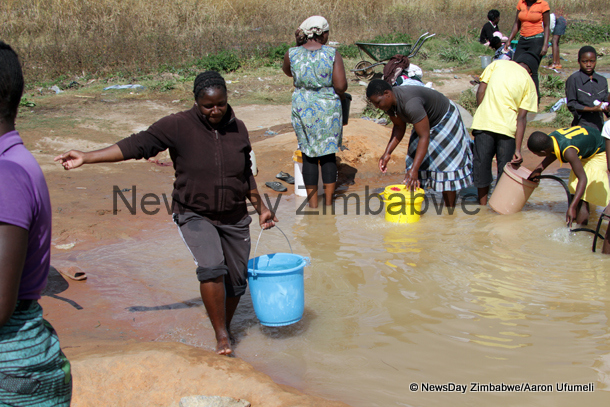
THERE are concerns over the quality of Bulawayo water as the city recorded an upsurge in diarrhoeal cases from 473 registered between July and September 2019 to 359 recorded in January 2020.
BY NQOBANI NDLOVU
In recent months, the local authority was forced to issue a statement to assure restive residents over the safety of its “foul smelling water” being pumped into residential homes.
In the latest case, council has been inundated with reports of residents, in particular from Luveve high-density suburb and surrounding areas, getting sick from tap water when supplies are restored.
Residents go for six days without the precious liquid under the current water-rationing regime following the decommissioning of three supply dams.
Council spokesperson Nesisa Mpofu said investigations were underway to establish the cause of the diarrhoea.
“The council is investigating the issue after receiving complaints of people getting sick after drinking tap water. We will only know (the cause) after the teams have finished their investigations,” Mpofu told Southern Eye.
There have been complaints over the foul smelling water that the local authority has been pumping.
- Chamisa under fire over US$120K donation
- Mavhunga puts DeMbare into Chibuku quarterfinals
- Pension funds bet on Cabora Bassa oilfields
- Councils defy govt fire tender directive
Keep Reading
The increase in diarrhoeal cases was first reported in November 2019 when residents were being forced to fetch water from unsafe sources owing to the prolonged water-rationing programme.
“We still have to analyse our figures to find out the reasons and compare this with the previous years to see whether there is a trend where we can then say definitely we have an issue of diarrhoeal cases increasing or decreasing,” council health services director Edwin Sibanda said.
Bulawayo has largely been spared deaths related to water-borne diseases such as typhoid, cholera and diarrhoeal cases.
In 2008 to 2009, the city was also relatively unscathed by the cholera epidemic that swept across the country and left thousands dead, mostly in Harare.











